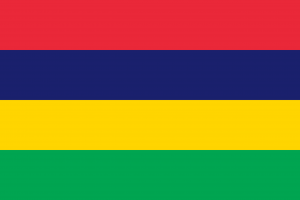Language/Morisyen/Grammar/Plurals
Hi Morisyen learners! 😊
In this lesson, we will deepen our understanding of Morisyen grammar by exploring plurals. As you know, in Morisyen, as in any language, there are specific rules that govern how nouns change to indicate plural forms. We will go through these rules step by step to help you use plurals in Morisyen with ease. We will also enrich our understanding of the Morisyen culture by looking at how people use plural forms in everyday speech.
Once you've mastered this lesson, take a look at these related pages: How to Use "Have", Conditional Mood & Gender.
Plural Nouns[edit | edit source]
In Morisyen, forming the plural of nouns typically involves adding a suffix to the singular form of the noun. The general rule is to add the suffix "-z" to the end of the singular noun, as in:
| Morisyen | Pronunciation | English | |||
|---|---|---|---|---|---|
| fanmi | [faŋ.mi] | family | fanmiz | [faŋ.miz] | families |
As you can see, adding the suffix "-z" to the singular noun "fanmi" turns it into the plural noun "fanmiz", meaning "families".
However, it's important to note that there are a few exceptions to this rule. For example, some nouns form their plural by simply adding "-s" to the singular, as in:
| Morisyen | Pronunciation | English | |||
|---|---|---|---|---|---|
| lamis | [la.mis] | lesson | lamis ??- ?? | [laː.mis] | lessons |
Similarly, some nouns form their plural by changing the last letter of the singular, for example from "-t" to "-té", or from "-n" to "-nn", as in:
| Morisyen | Pronunciation | English | |||
|---|---|---|---|---|---|
| mwin | [mwiːn] | monkey | mwinnté | [mwiːn.t̪eː] | monkeys |
We will explore these exceptions in detail in the sections below.
Plurals with Suffix "-z"[edit | edit source]
As mentioned earlier, the most common way to form the plural of nouns in Morisyen involves adding "-z" to the singular noun. Here are some examples:
| Morisyen | Pronunciation | English | |||
|---|---|---|---|---|---|
| liv | [lif] | book | livz | [lifz] | books |
| bib | [bib] | baby | bibz | [bibz] | babies |
| lapom | [la.pom] | tomato | lapomz | [la.pomz] | tomatoes |
| tifi | [tifi] | girl | tifiz | [tifiks] | girls |
To form the plural of nouns that end in a consonant, you simply add "-z" to the end of the word, as in "liv" > "livz".
To form the plural of nouns that end in a vowel, you add "-z" after the vowel, as in "bib" > "bibz".
Nouns ending in "-i" maintain the same "-i" sound in the plural form, as in "tifi" > "tifiz".
Plurals with Suffix "-s"[edit | edit source]
As mentioned earlier, some nouns form their plural by simply adding "-s" to the singular form of the noun. Here are some examples:
| Morisyen | Pronunciation | English | |||
|---|---|---|---|---|---|
| kwi | [kwiː] | tree | kwis | [kwiːs] | trees |
| lazwar | [la.zwaːr] | blue | lazwars | [la.zwaːrs] | blues |
Notice that the plural form in these examples does not have a "-z" at the end, as in the previous examples. The rule for these nouns is simple: you add "-s" to the end of the word if it ends in a vowel, as in "kwi" > "kwis". If it ends in a consonant, you add "-s" at the end, as in "lazwar" > "lazwars".
Plurals with Consonant Changes[edit | edit source]
As mentioned earlier, some nouns form their plural by changing the final consonant of the singular form of the noun. Here are some examples:
| Morisyen | Pronunciation | English | |||
|---|---|---|---|---|---|
| tiok | [t̪i.oɡ] | boy | tyok | [t̪jok] | boys |
| kev | [kev] | hair | kevé | [keveː] | hairs |
| linn | [lin] | line | linnn | [lin.n̩] | lines |
Notice that in some cases, a consonant may be repeated in the plural form of the noun, as in the example "linnn" for "lines". This is a special case for some nouns that end in "-n".
Pluralia Tantum[edit | edit source]
In Morisyen, there are nouns that exist only in the plural form, and cannot be used in the singular. These are called "pluralia tantum". Here are some examples:
| Morisyen | Pronunciation | English | |||
|---|---|---|---|---|---|
| zoizo | [zoy.zo] | birds | banzli | [baŋz.li] | trousers |
As you can see, these nouns do not have a singular form, and they also have specific rules that govern their use in sentences. For example, "banzli" will always be used with a plural verb, even when referring to a single pair of trousers.
Cultural Note[edit | edit source]
Morisyen is spoken in Mauritius, an island nation in the Indian Ocean. The country has a rich and diverse cultural heritage, with influences from African, Indian, Chinese, and European cultures. Morisyen reflects this diversity in its vocabulary, which includes words borrowed from French, English, and other languages.
Understanding plurals in Morisyen can help you communicate more effectively in the language, whether you are chatting with locals at the market, or reading a book in Morisyen. To build your Morisyen language skills, check out Polyglot Club, where you can find native speakers and ask them any questions!
Dialogue[edit | edit source]
Person 1: Nou ti pe servi saka sa? ([What is that bottle called?]) Person 2: Sa i apel saka péi. Saki nou servi ki normalman vin dan lot sirtou. ([That's called a "saka péi". The type we use is usually made from other materials.])
Person 1: Nou bisin pran plizir. ([We need to take some chairs.]) Person 2: OK. Ala res nou bisin. ([OK. Here's what we need.])

